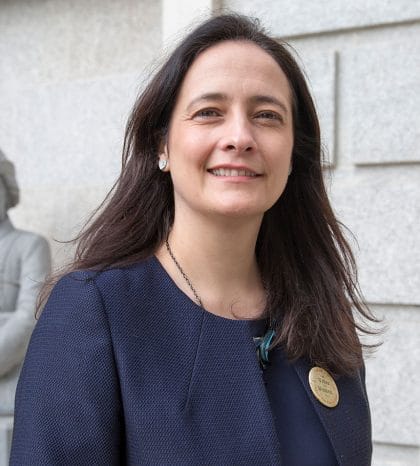Plans to replace the licence fee with a €10 to €15 a month charge on broadband and internet has been called “regressive.”
First reported in the Sunday Business Post, the Coalition has scrambled to plug the gap in RTÉ funding after reports from earlier this month showed that there was a 13% drop off in people paying for the licence fee in Ireland in 2023 in the wake of the Ryan Tubridy scandal.
The paper reported that Minister for Media Catherine Martin favours a exchequer-funded model for state broadcasting, akin to other European nations, while Minister for Finance Michael McGrath is reportedly advocating for a levy form of financing.
A decision on future funding of RTÉ is due to be made in the early part of 2024, with RTÉ losing as much as €20 million in lost revenue last year from people deciding not to pay or renew their licence fee.
The Future of Media Commission in 2022 has suggested three options for the future of the TV licence system in Ireland, with the options being keeping the system as is, introducing a universal charge, or exchequer funding.
Martin told the paper that the exchequer funding is her preferred model of funding, as is the case across the rest of Europe, with Fianna Fail Senator Shane Cassells quoted in the piece as saying it would be “totally crazy” to abolish the licence fee.
“Broadband is a necessity, not a luxury. This would be a regressive tax, hitting the poorest families hardest. Public service broadcasting should be paid for by direct progressive taxation.”
In August 2022, the French Senate passed a law that abolished the TV licence fee in France, stating it was a necessary measure in the context of the cost of living crisis.
In the UK, licence fee funding of the BBC has become a major political issue, with a planned £10 increase from April being met with fierce opposition across the political spectrum.
